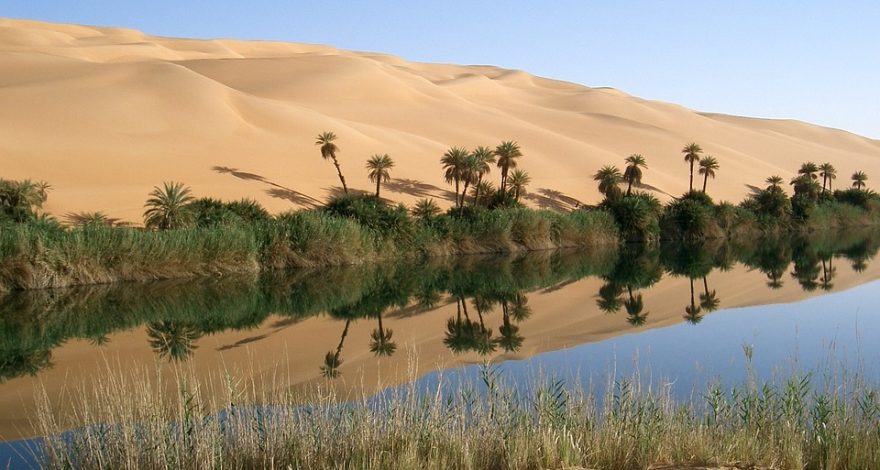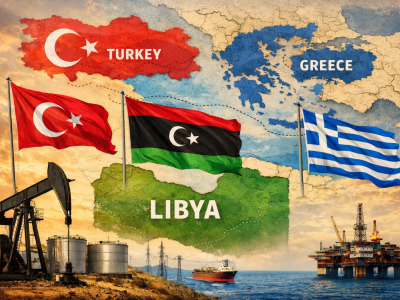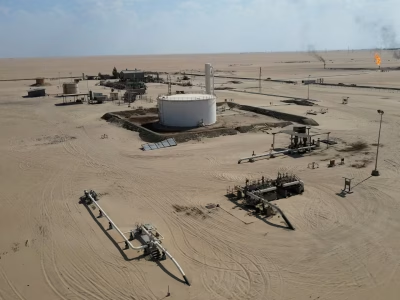Libya Climate Resilience Project: IFAD and UNOPS Launch $9.2M RENEWAL Initiative
In May 2025 the International Fund for Agricultural Development (IFAD) and the UN Office for Project Services (UNOPS) began a US$9.2 million project to help Libyan farmers cope with chronic water scarcity. Funded by the UN climate Adaptation Fund, the “RENEWAL” project (Resilience to negative impacts of climate‑aggravated water scarcity in the agriculture sector in Libya) aims to stretch water supplies and build climate resilience for roughly 57,000 smallholder farmers and pastoralists in the country’s driest regions. This is IFAD’s first investment in Libya; the money will support new irrigation methods, drought‑ and salt‑tolerant crops and training in climate‑smart farming. Officials say the goal is to help rural households not just survive climate shocks but thrive despite them.
Libya is among the world’s most water‑stressed nations. Around 90% of the land is desert and only about 1% is arable. Rainfall is scant and agriculture relies almost entirely on overdrawn aquifers. Over the past decade higher temperatures, droughts and even seawater intrusion into coastal aquifers have deepened the crisis. Outdated irrigation networks and post‑conflict political upheaval have made matters worse. The environment ministry warns that without urgent action Libya “may be unable to provide water to its population in the future”. Strengthening the resilience of farmers and herders is seen as critical for food security and rural stability.
Core project features
RENEWAL tackles these stresses with a suite of measures. It will introduce more efficient irrigation and water‑harvesting techniques to reduce losses. Farms will switch to heat‑ and drought‑resistant crops and salt‑tolerant varieties suitable for Libya’s dry climate. Soil and rangeland management will be upgraded, for example by rehabilitating degraded grazing areas. The project will fund climate‑vulnerability studies in each target area to guide investment and ensure aid reaches the worst‑hit zones. Throughout, training and capacity building will focus on local communities – especially women, youth and pastoralists – to spread climate‑smart practices on Libyan farms.
These efforts will be rolled out in stages across the northwest, northeast and southern regions of Libya. For instance, arid districts such as Jifara (near Tripoli) and Jabal al Gharbi (in the west) will get priority. Best practices and lessons learned will be captured and shared nationally so that successful techniques can be replicated elsewhere. Ultimately, RENEWAL is designed as a systemic approach: combining better water management, resilient seeds and social inclusion to make scarce resources last longer.
Governance and partners
The Adaptation Fund grant is a pure transfer (no loan) that signals confidence in Libya’s stability and commitment to climate priorities. IFAD – a UN agency dedicated to rural poverty – leads the effort, with UNOPS handling on‑the‑ground implementation. Libyan authorities are partners: in April 2025 the foreign affairs ministry hosted the project’s inauguration in Tripoli. Senior officials from Libya’s environment and agriculture departments joined the launch, praising RENEWAL as a “critical step” for water and food security. The environment minister highlighted the project’s focus on vulnerable communities and climate justice. IFAD’s country director noted that helping farmers adapt is “a vital initiative” and a strong commitment to Libya’s future.
RENEWAL dovetails with Libya’s own development plans. The country has pledged to diversify rural livelihoods and manage water sustainably as part of its strategy for agricultural growth. The Adaptation Fund – financed by a share of carbon market proceeds and donor contributions – aims to finance exactly these kinds of climate‑proofing schemes. RENEWAL thus represents a notable shift: donor funds flowing directly into a fragile, oil‑dependent state to shore up its food supply. Libya has long been a member (and funder) of IFAD, but until now it had not received any project funding from it. The RENEWAL project’s launch marks the first time an international development agency has invested directly in Libya’s agriculture in decades.
Expected impact
Together, these initiatives should make Libyan farming more resilient. By conserving water and raising yields per drop, RENEWAL aims to extend the life of the country’s remaining water resources. Climate‑smart farming techniques should buffer crops against heatwaves and erratic rains. Policymakers hope the project will not only prevent crop failures but also dampen rural‑urban migration, as farmers find sustainable jobs at home. Crucially, supporting farmers can help social stability; UN reports note that rural discontent has at times fueled unrest in Libya. Building resilience, especially among women and youth, aligns with global efforts to make climate finance equitable and effective.
In short, RENEWAL embodies a new focus on water‑wise agriculture in North Africa. By marrying technical fixes (better irrigation, robust crops) with community engagement, it aims to turn climate stresses into an opportunity. For policy experts, Libya’s RENEWAL project is a bellwether: it shows that even countries emerging from conflict can draw down international climate funds to safeguard farmers. The coming months will test whether RENEWAL lives up to its promise, but its launch already sends a clear signal that climate resilience and rural development are inseparable in Libya’s future.




